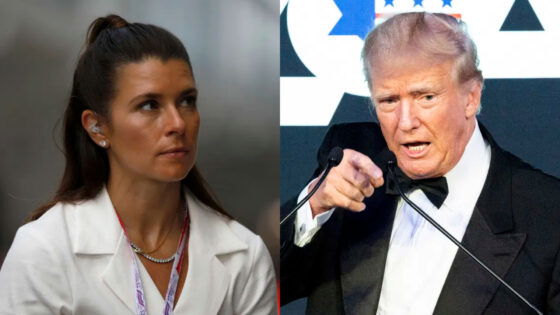Late Friday night, while much of the CFB world was winding down, the BYU athletic department was waking up to a seismic shift. U.S. Judge Claudia Wilken gave final approval to the $2.8 billion House v. NCAA settlement, effectively rewriting the economics of college sports. For Kalani Sitake and the Cougars, it was a moment layered with promise and paradox. The money is real—huge, game-changing money. But as BYU gets set to rake in a windfall from the upcoming $31.7 million annual payouts tied to the new ESPN and FOX media rights deal, Sitake’s unique challenge isn’t cash. It’s culture.
Kalani Sitake has never shied away from the tightrope he walks at BYU Cougars. The school’s strict religious guidelines are etched into the daily rhythm of its football program, and that reality isn’t lost on those watching from outside. On a recent episode of The R&J Show, analysts Joe DeLeone and Blake Ruffino cut through the niceties. “BYU ain’t going to recruit like that though,” Ruffino said. “They ain’t going to. And ain’t nobody, with all due respect… going to that kind of a religious school. It’s different than going to Notre Dame. It’s a much different scenario. You’re not Mormon. It’s a tough thing to mesh with.”
The sentiment was blunt, and DeLeone followed up with a pointed description of what daily life looks like for a Cougar football player. “There’s curfews. I mean, like 9:00 curfews on weekdays,” he said. “Joe, you played college football. I mean, study hall for freshmen is done at 9:00. Yeah, meetings would be done at 10. I mean, also on top of that, guys want to go out. And you’re not stopping kids from going out if they really want to.” In a recruiting arms race that now includes NIL deals, endorsement leverage, and conference brand power. Such a rigid structure doesn’t just feel old-school—it risks feeling outdated.
Yet BYU doesn’t see its identity as a limitation. Quite the opposite. The university stands firm in its belief that athletics serve a higher purpose. BYU doesn’t see athletics as a time to magnify our differences. Rather, they elect to compete as a tool to restore unity—not building up borders of disdain. That quote isn’t on a t-shirt or in a hype video. It’s in the DNA of the institution. But in the modern machine, culture wars are waged at 18 years old and over Instagram DMs. And no matter how good Sitake’s system is on the field, cultural restrictions remain the quiet ceiling above BYU’s recruiting floor.
Financially, though, Kalani Sitake’s program just caught a second wind. With partial revenue from the Big 12 already trickling in thanks to Brett Yormark’s redistribution model—$558 million shared for 2024-25—the real flood starts in 2025. That’s when BYU goes from knocking on the door to kicking it in with an extra $13 million in annual revenue from the TV deal. That’s on top of the $20.5 million previously coming in. And with the House v. NCAA ruling now finalized, BYU has the green light to leverage those dollars across both football and basketball.
So, it could lead to a recruiting monopoly for the schools that balance resources, vision, and flexibility. BYU already outperforms expectations on the field—this money could supercharge what was already a powerful program.
BYU crashes the Top 25 Future Power Rankings
The roar in Provo just got louder, and Cougar Nation has every reason to let it rip. Kalani Sitake, now heading into his 10th season at the helm, finally has what feels like his most balanced and complete coaching staff yet. And with it comes a milestone worth celebrating: BYU football has officially cracked ESPN’s Future Power Rankings for the first time ever, sliding in at No. 25. After years of grinding in the shadows and begging for a seat at the national table, the Cougars are now being taken seriously for the 2025 and 2026 seasons.
The list isn’t just about past wins—it’s a projection of program strength, depth, recruiting momentum, and sustainability. And for BYU, it’s a sign that the blueprint is working.
Of course, no success story comes without a little drama. The QB room, while bursting with upside, is also walking a tightrope. Jake Retzlaff, the dual-threat dynamo who helped engineer BYU’s impressive 11-win campaign in 2024, is expected to return. However, a pending civil lawsuit could potentially complicate his role going forward. Behind him, though, Sitake has capable backups in McCae Hillstead and Treyson Bourguet—two guys with legitimate FBS starting experience.
The future is just bright in Provo.
The post Kalani Sitake’s Ambitions Hit Hard by Tough BYU Culture Verdict After Receiving $13M News appeared first on EssentiallySports.



